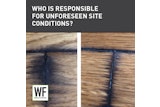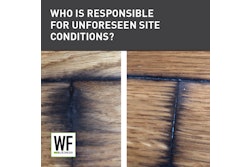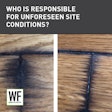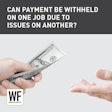

When it comes to your business's legal obligations during COVID-19, there's a lot going on—and things are changing fast. Some obligations have eased, while some have gotten, or stand to get, stricter. Here are some legal updates you should be aware of to help protect yourself and your business:
1. PPP forgiveness is simplified for smaller loans.
One of the many challenges for businesses since the pandemic has been navigating Paycheck Protection Program loans. If your business received a PPP loan of $150,000 or less, a system is now in place that almost automatically forgives that loan. Previously, in order for these to be forgiven, a business needed to calculate adjustments based on whether there were reductions in its number of full-time (or full-time equivalent) employees, or if it had wage reductions of more than 25% since receiving the loan. Businesses that made those changes would have less of their loans forgiven. However, with the new system for smaller loans, there is no reduction in loan forgiveness based on the reduction of full-time employees, nor is there a reduction in loan forgiveness if wages or salaries were reduced by more than 25%. All you're going to have to do is identify how many employees you had and how many you retained, the amount of the loan spent on payroll costs and the total loan amount. So anything under $150,000 is going to be a pretty easy process if you spent 60% of the loan on payroll costs.
RELATED: Managing Your Flooring Retail Store in the Time of COVID
They've also increased the flexibility of the covered period. Before, it had to be eight or 24 weeks. They now said it can be anywhere between eight and 24 weeks after the loan was originated. These changes cut down on complicated administrative work—you can simply input your loan forgiveness amount on the "honor system." That said, it's still good to maintain clear records in case of an audit.
2. More states are imposing COVID-19 workplace requirements.
As of now, there is no blanket immunity for businesses if someone there gets COVID-19. But there are precautions businesses can take, such as following regulations provided by the Centers for Disease Control and the Occupational Safety and Health Administration. Both have COVID-19-related requirements for the workplace, but they've been generally unenforced in many fields, including construction (OSHA has concentrated much of its enforcement on healthcare). But if you show you did follow the CDC and OSHA recommendations, it'll be much more difficult to hold you liable should someone get COVID-19. It will not totally grant you immunity, but it will help you a little bit. States have also been ramping up their own requirements in recent months, including requirements related to entering a customer's home. It's important to stay on top of what's going on in your state or county regarding mandatory mask rules or limited business capacities, as failures to follow such orders can result in fines.
3. Standard client contracts should be updated.
Many standard contracts have a "force majeure" clause, which covers delays or disruptions caused by acts of God—things you have no control over. However, to fall under this clause, the cause of the delay must be unforeseeable—and I think it's safe to say that the pandemic has stopped qualifying as "unforeseeable." Contracts should now specify that you are not liable for delays or shutdowns resulting from COVID-19.
4. Paid sick leave is changing again.
Last year, the U.S. passed the Families First Coronavirus Response Act (FFCRA), which required paid sick leave if the employee is unable to work or telecommute for COVID-related reasons. The latest legislation no longer mandates paid sick leave for employees but continues to offer a tax credit. So, if you voluntarily pay somebody for COVID-related reasons, if they're sick or are a caretaker who can't come to work, or their child doesn't have school and they have to stay home, you can get a tax credit for it. Every dollar you spend reduces your tax by that dollar, provided you didn't use your PPP loan to pay those on leave.
There will continue to be big changes. It's important to stay aware of these legal updates and not get too comfortable, as things are moving fast. You can follow the World Floor Covering Association's COVID-19 updates at wfca.org.
RELATED: Why We're Strong While Enduring These Strange Pandemic Times

































